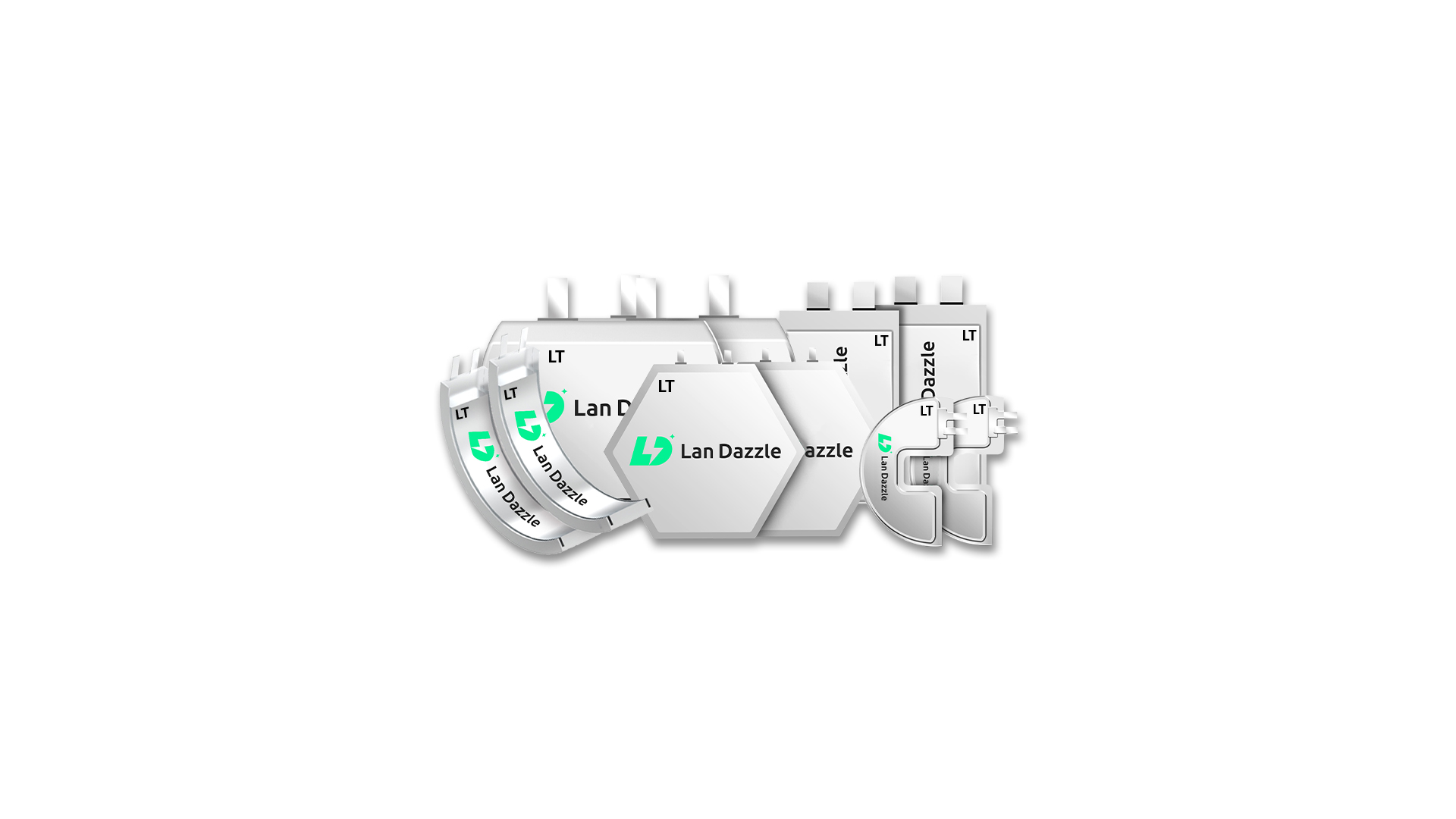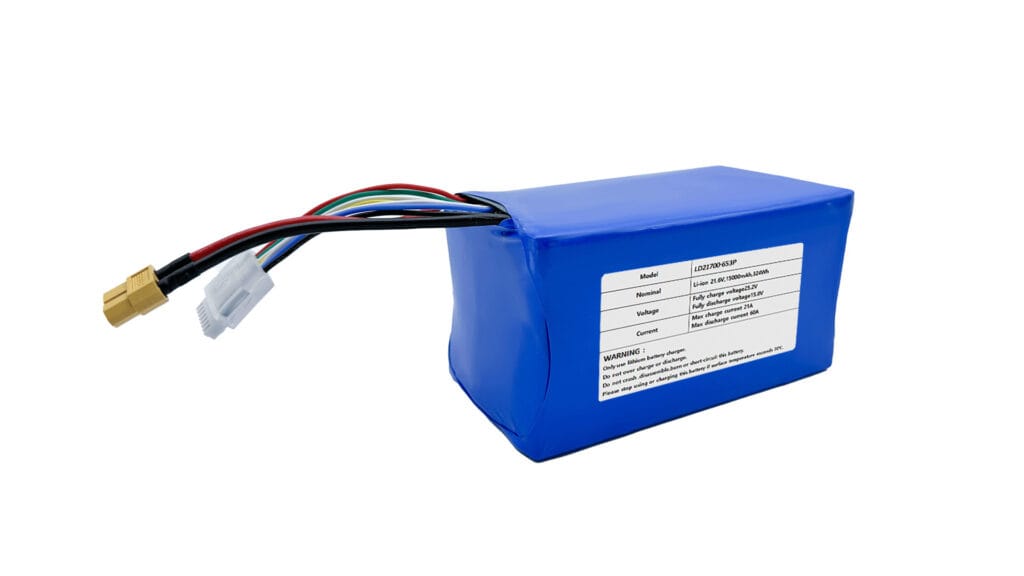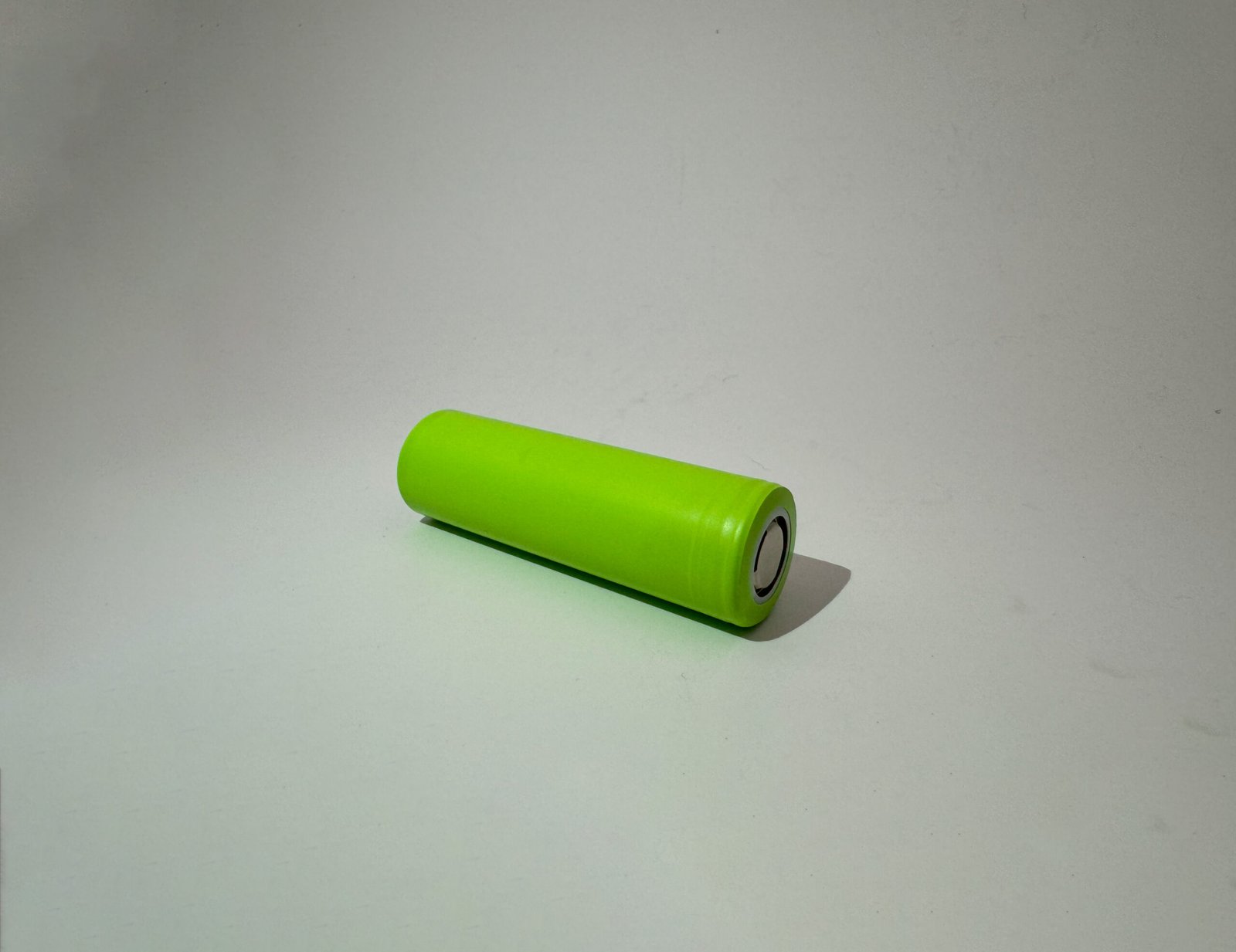In the rapidly evolving landscape of modern product development, innovation is often measured by what was once considered impossible. From feather-light wearables to life-saving medical devices and the expansive world of IoT, the common thread weaving through groundbreaking designs is efficient, reliable, and precisely integrated power. Yet, as product designers, engineers, and decision-makers, you frequently encounter a fundamental challenge: standard, off-the-shelf batteries rarely fit the unique form factors or demanding performance requirements of truly novel products.
This is where custom Li Polymer battery solutions emerge not just as an option, but as a critical enabler. These bespoke power sources unlock unparalleled design freedom, significantly enhance product performance, and ensure the unwavering reliability essential for cutting-edge electronics across a multitude of industries. This comprehensive guide will explore why tailored LiPo battery solutions are indispensable for your next innovative product, how they are meticulously designed, and what to look for in a manufacturing partner.
Why Standard Batteries Fall Short: The Need for Customization
The allure of readily available components is understandable, but when it comes to power, a “one-size-fits-all” approach often leads to compromises that hinder product potential and market acceptance.
Form Factor Limitations
Standard batteries come in predetermined, rigid shapes and sizes – typically cylindrical or prismatic rectangles. While suitable for conventional electronics, they become significant roadblocks for sleek, miniaturized, or ergonomically complex product designs. Imagine designing an ultra-thin smartwatch, a uniquely contoured gaming controller, or a compact, oddly shaped IoT sensor. Forcing a standard battery into these designs often results in:
- Compromised Aesthetics: Bulky protrusions or awkward design elements.
- Inefficient Space Utilization: Wasted internal volume, leading to larger-than-necessary product dimensions.
- Limited Ergonomics: Products that feel clunky or uncomfortable in the hand or on the body.
A custom curved or L-shaped battery, for instance, enables a truly form-fitting smartwatch, allowing for a more elegant and comfortable user experience compared to one constrained by a rigid, rectangular power source. Similarly, a tiny, disposable medical sensor where every cubic millimeter counts simply cannot accommodate a bulky, off-the-shelf cell.
Performance Mismatches
Beyond physical constraints, generic batteries often fail to meet the precise performance demands of specialized applications. Products exhibit unique power profiles – from sudden, high-current draws for drone propulsion to very low, consistent drains for years in an IoT sensor. Without optimization, this can lead to:
- Inadequate Capacity: Shorter battery life than desired, frustrating users. Battery life is consistently cited as a top pain point for consumer electronics users, underscoring the importance of optimal power solutions.
- Insufficient Discharge Rate: Inability to deliver peak power when needed, causing performance lags or even system crashes (e.g., a drone requiring bursts of 100A for ascent, while its off-the-shelf battery only safely provides 50A).
- Poor Thermal Management: Overheating issues due to unsuitability for the product’s operational environment or power demands, impacting both safety and longevity.
Safety & Reliability Concerns
Safety is paramount, especially in applications like medical devices or wearables that have direct contact with users. Off-the-shelf batteries may lack the necessary integrated protection features or robust design needed for specific application safety needs. Without a tailored Protection Circuit Module (PCM) or Battery Management System (BMS), generic cells are prone to overcharge, over-discharge, short-circuit, and thermal issues specific to the product’s use case. This can lead to serious safety risks, premature battery degradation, or even catastrophic failure. A medical device, for instance, where battery failure could be life-threatening, demands an absolutely reliable and safe power source tailored to its exact specifications.
The Advantages of Custom Li Polymer Battery Solutions
Opting for custom Li Polymer battery solutions transcends merely fitting a battery into a space; it’s about engineering the perfect power source to unleash your product’s full potential.
Unparalleled Design Flexibility
This is arguably the most compelling advantage. Custom LiPo batteries can be molded into virtually any shape – L-shaped, curved, ultra-thin, irregular polygons, or even flexible sheets – to conform precisely to your product’s internal housing. This allows for:
- Maximal Space Utilization: Every cubic millimeter can be efficiently used, enabling smaller, lighter, and more compact product designs.
- Enhanced Aesthetics: Seamless integration without compromising the product’s intended look and feel.
- Innovative Form Factors: The ability to create products that simply wouldn’t be possible with standard battery shapes. For example, a company designing “smart fabric” or “smart contact lenses” might require paper-thin, flexible batteries that can bend and conform.
Optimized Performance Characteristics
Beyond shape, custom LiPo solutions allow for precise tuning of electrical performance. This includes:
- Custom Voltage & Capacity: Tailored to meet the exact power requirements for extended runtime and optimal system efficiency.
- Specific C-Rates: Ensuring the battery can deliver the necessary peak power for demanding operations without stress.
- Optimized Energy & Power Density: Selecting specific cell chemistries and configurations to achieve the highest energy density (Wh/L for longer run time) or power density (W/kg for high current delivery) based on your product’s priorities. The energy density of Li-ion batteries, including LiPo variations, has seen approximately a 5-8% increase per year over the last decade, with research constantly pushing theoretical limits further.
- Improved Cycle Life: By optimizing cell selection and integrating a smart BMS, custom batteries can achieve superior cycle life, exceeding 500-1000 cycles at 80% capacity retention when properly engineered, translating to a longer product lifespan.
Enhanced Safety and Longevity
Safety is non-negotiable. Custom LiPo solutions integrate advanced safety features directly into the battery pack:
- Integrated PCM/BMS: These sophisticated circuits act as the “brain” of the battery, continuously monitoring voltage, current, and temperature. They prevent dangerous conditions like overcharge, over-discharge, short-circuit, and thermal runaway. They also balance individual cells within a pack, preventing over-stressing and extending overall battery life.
- Specialized Cell Selection: Reputable manufacturers source high-quality cells specifically rated for the intended application’s demands.
- Robust Thermal Management: Designing the battery pack with appropriate thermal pads, insulation, or heat dissipation pathways ensures stable operation even under strenuous conditions.
- Rigorous Testing & Certification: Custom batteries are designed to meet stringent international safety standards such as UN 38.3 (for safe transportation), IEC 62133 (for portable sealed secondary cells and batteries), UL 1642, and UL 2054 (North America), ensuring regulatory compliance and peace of mind.
Accelerated Time-to-Market & Cost Efficiency
While initial development costs for custom solutions exist, the long-term benefits often translate to significant savings and faster market entry:
- Avoiding Costly Redesigns: A perfect fit and optimal performance from the outset eliminate the need for expensive product redesigns or battery retrofits later.
- Streamlined Integration: A custom battery integrates seamlessly, simplifying assembly processes and reducing manufacturing complexities.
- Expert Consultation: Engaging with battery experts early in the design process helps mitigate risks, identify optimal solutions, and reduce overall development cycles.
- Optimized Bill of Materials (BOM): Custom solutions can lead to a more efficient use of materials and components in the battery pack, potentially reducing per-unit costs at scale.
The Custom LiPo Battery Design and Manufacturing Process
Bringing a custom LiPo battery to life is a meticulous, multi-stage process that requires deep expertise and precision engineering.
Initial Consultation & Requirements Gathering
This foundational stage is critical. Experienced battery engineers work closely with your product design team to understand every nuance of your device. Key questions addressed include:
- Product Dimensions & Available Space: Exact measurements and 3D models of the battery compartment.
- Electrical Requirements: Required voltage, capacity (mAh/Wh), peak and average current draws, and anticipated duty cycles.
- Environmental Conditions: Operating temperature range, storage conditions, humidity, and any exposure to shock, vibration, or chemicals.
- Expected Life Cycle: Target product lifespan, desired charge/discharge cycles, and expected shelf life.
- Regulatory Compliance: Specific safety certifications required for target markets (e.g., UL, CE, UN38.3).
- Target Production Volume & Cost: Understanding the scale of production influences material selection and manufacturing processes.
Cell Selection & Core Component Sourcing
Based on the gathered requirements, the most suitable LiPo cells are selected. This involves choosing the right cell chemistry (e.g., Cobalt, Manganese, NMC, LFP) based on the balance of energy density, power density, safety characteristics, and cost. Reputable manufacturers have established relationships with top-tier cell suppliers, ensuring consistent quality and reliable supply chains.
Mechanical & Electrical Design
This is where the theoretical design takes shape.
- Mechanical Design: Engineers create precise 3D CAD models of the battery pack, ensuring perfect fit within the product enclosure. This includes the battery cell arrangement, housing design, and any necessary mounting features.
- Electrical Design: This involves designing the Protection Circuit Module (PCM) or Battery Management System (BMS). The PCB layout, component selection (e.g., MOSFETs, thermistors, fuel gauges), and connector types (e.g., JST, Molex, custom pogo pins) are all carefully chosen and integrated to ensure optimal performance, safety, and communication with the host device. Thermal considerations are paramount here, with designs incorporating methods to dissipate heat effectively.
Prototyping, Testing & Validation
Once the design is finalized, prototypes are rapidly created for evaluation. This iterative phase involves:
- Prototype Manufacturing: Using rapid prototyping techniques to produce initial samples.
- Performance Testing: Rigorous testing of capacity, voltage, internal resistance, and discharge characteristics under various loads.
- Cycle Life Testing: Assessing how many charge/discharge cycles the battery can endure while retaining a significant portion of its capacity.
- Environmental Testing: Exposing batteries to extreme temperatures, humidity, vibration, and shock to simulate real-world conditions.
- Safety Testing: Comprehensive tests for overcharge, over-discharge, short-circuit, crush, impact, and thermal runaway, ensuring compliance with international safety standards. Reputable manufacturers often implement multi-stage testing processes with up to 30 quality checkpoints from cell incoming inspection to final pack shipment.
- Certification Process: Guiding the battery through necessary regulatory certifications (e.g., UN 38.3, IEC 62133) to ensure it can be legally and safely transported and sold globally.
Custom LiPo Applications Across Industries
The versatility of custom LiPo battery solutions makes them indispensable across a wide array of cutting-edge industries.
Wearables & Hearables
From smartwatches and fitness trackers to AR/VR headsets and hearable devices, miniaturization and comfort are key. Custom LiPo batteries enable ultra-thin profiles, curved designs, and high energy density in confined spaces, supporting long battery life for always-on functionality without bulk. An ultra-slim battery for a smart ring or a perfectly curved battery for a sleek smartwatch exemplifies this.
IoT Devices & Sensors
IoT devices, including remote sensors, smart home devices, and asset trackers, often require compact, long-lasting power solutions. Custom LiPo can be designed for extremely low self-discharge and high energy efficiency, enabling devices to operate for years without maintenance. Think of miniature batteries for wireless environmental sensors or compact power sources for smart locks.
Medical Devices
In the medical field, reliability, safety, and precise performance are non-negotiable. Custom LiPo batteries power portable medical equipment, diagnostic tools, and even implantable devices. They offer the consistent, reliable power needed for sensitive electronics, adhering to the highest safety and quality standards (e.g., high-reliability batteries for portable oxygen concentrators or bio-compatible batteries for medical implants).
Drones & Robotics
Drones (UAVs) and various robotic applications demand high power density and high discharge rates for propulsion, along with lightweight designs for extended flight or operation times. Custom LiPo solutions provide the burst power needed for agile maneuvers and efficient energy storage for longer missions. Racing drones, for example, rely on ultra-high C-rate custom LiPos for aggressive performance.
Consumer Electronics
Beyond wearables, a wide range of specialized consumer electronics benefits from custom LiPo. This includes portable audio devices, handheld gaming consoles, high-end digital cameras, and smart home gadgets. Custom solutions balance performance, form factor, and cost-effectiveness to create more competitive and user-friendly products.
Choosing the Right Partner for Your Custom Battery Solution
The success of your product hinges on the quality and reliability of its power source. Selecting the right custom LiPo battery manufacturer is a strategic decision. Look for a partner with:
- Proven Expertise & Experience: A track record of successful custom battery projects across relevant industries.
- Comprehensive In-House Capabilities: From design and prototyping to advanced testing, manufacturing, and quality control. This ensures seamless processes and accountability.
- Certifications & Quality Assurance: Adherence to international standards (ISO 9001, UL, CE, UN38.3, IEC 62133) and robust quality management systems.
- Strong Engineering Support: A team that offers collaborative design consultation, problem-solving, and ongoing technical assistance.
- Scalability: The ability to scale from low-volume prototypes to high-volume mass production efficiently.
- Customer-Centric Approach: A partner committed to understanding your unique needs and delivering solutions that exceed expectations.
Conclusion
In today’s competitive product landscape, the battery is no longer just a commodity; it’s a critical, integrated component that defines a product’s performance, user experience, and market viability. Custom Li Polymer battery solutions offer a transformative pathway for product designers and engineers to overcome conventional limitations, achieving unparalleled design flexibility, optimized performance, and enhanced safety.
By investing in a tailored power solution, you’re not just buying a battery; you’re investing in innovation, reliability, and a significant competitive advantage. As battery technology continues to evolve, the ability to customize power to the precise needs of your unique product will only become more crucial. For your next groundbreaking project, explore the power of custom Li Polymer solutions and unlock the full potential of your design.
Partner with Lan Dazzle for Tailor-Made Power Solutions
At Lan Dazzle, we specialize in designing and manufacturing custom Li Polymer batteries to match the exact specifications of your product—no matter how compact, curved, or unconventional the form factor may be. Whether you’re building next-gen wearables, medical devices, drones, or smart consumer electronics, our team ensures optimal battery performance, safety, and seamless integration. From concept to mass production, we provide reliable engineering support and fully customized battery solutions to power your innovation.
📩 Contact us today at info@landazzle.com to discover how we can bring your product to life with a battery built just for it.
Frequently Asked Questions (FAQ)
- Q: What is the typical lead time for a custom Li Polymer battery solution, from design to mass production?
- A: Lead times vary significantly based on complexity and production volume. Initial design and prototyping can take 4-6 weeks, while full tooling and mass production might range from 12-20 weeks. Simpler designs using readily available cell types can be faster, but highly specialized designs or those requiring new cell development will naturally extend this timeline.
- Q: What is the difference between LiPo and Li-ion batteries, and why choose LiPo for custom solutions?
- A: While both are lithium-ion technologies, traditional Li-ion batteries typically use a rigid metallic casing (e.g., cylindrical 18650 cells), whereas LiPo batteries utilize a flexible, pouch-type casing with a polymer electrolyte. This flexible construction allows LiPo cells to be molded into various shapes and sizes (e.g., ultra-thin, curved, L-shaped), making them uniquely suited for custom designs where space constraints and unique form factors are critical. LiPo also generally offers higher energy density and a thinner profile compared to standard cylindrical Li-ion cells.
- Q: What safety certifications should a custom Li Polymer battery solution have?
- A: Essential certifications include UN 38.3 (for safe transportation globally), IEC 62133 (an international safety standard for portable sealed secondary cells and batteries), and often region-specific certifications such as UL 2054/1642 (for North America) and CE (for the European market). A reputable manufacturer will ensure compliance and assist with the certification process for your target regions.
- Q: How much does a custom Li Polymer battery solution cost compared to an off-the-shelf one?
- A: Initial Non-Recurring Engineering (NRE) costs for custom solutions are typically higher due to specialized design, tooling, and prototyping. However, for mid to high-volume production, the long-term benefits often lead to a lower total cost of ownership. These benefits include optimized performance, a perfect fit that reduces assembly complexity, enhanced product value, and avoidance of costly redesigns, ultimately contributing to a more competitive final product.
- Q: Can custom LiPo batteries be designed for extreme temperatures or harsh environments?
- A: Yes, custom solutions can be engineered to perform in challenging conditions. This involves selecting specialized cell chemistries designed for wider temperature ranges and incorporating robust thermal management systems (e.g., PTC thermistors, NTC thermistors, custom insulation, and optimized pack ventilation). Such designs ensure safe and efficient operation even in very hot or very cold environments, depending on the specific application requirements.
- Q: What information do I need to provide to start a custom battery design project?
- A: To initiate a custom battery design project, provide comprehensive details including: the physical dimensions and available internal space within your product for the battery; required voltage and capacity (mAh/Wh); peak and average current draws; expected cycle life and product lifespan; the anticipated operating temperature range; preferred charging method; any specific safety or regulatory certifications needed; and your estimated target production volumes.





